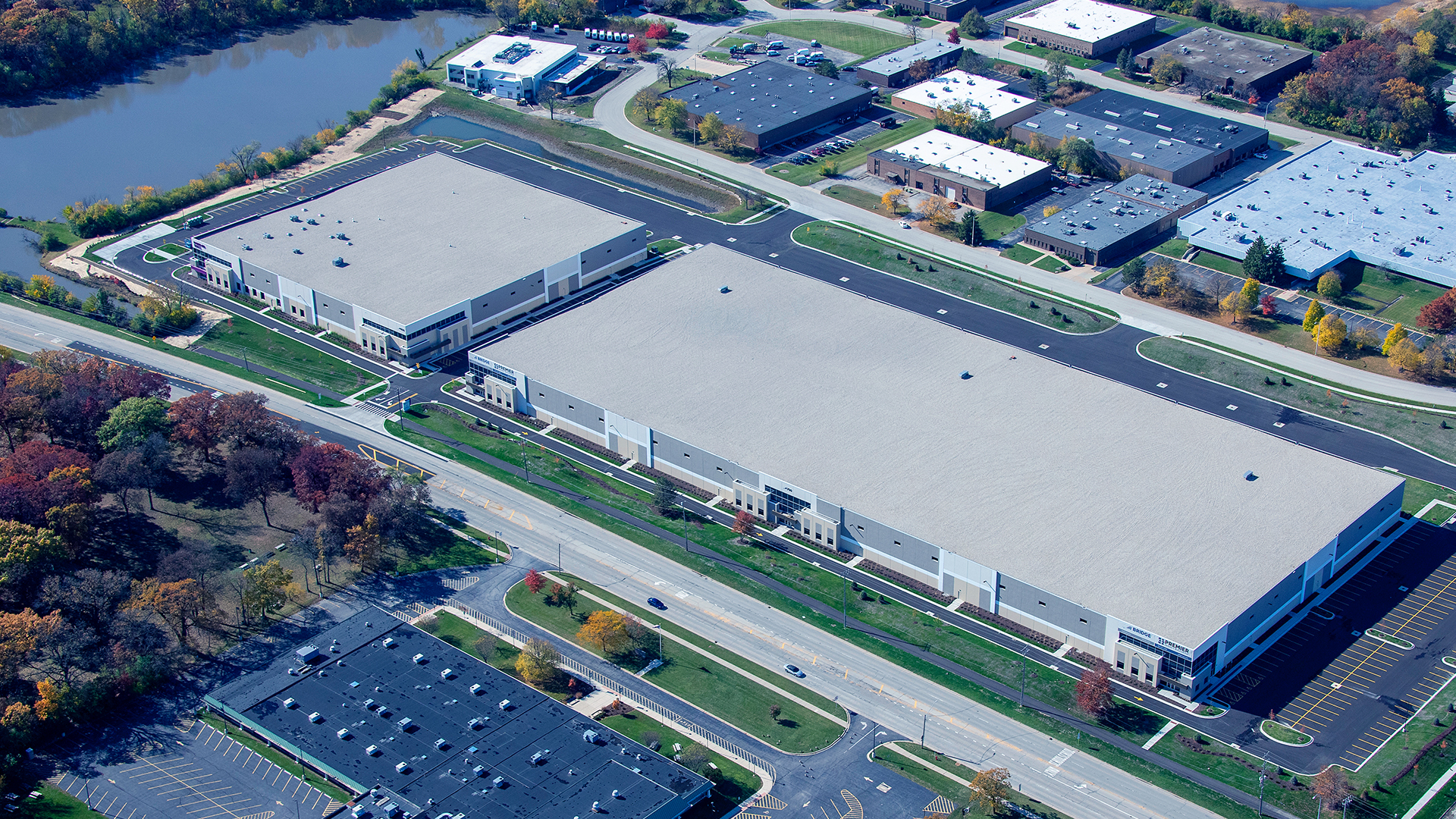For Wood Dale, the stakes were high when searching for tenants to occupy a new 342,000-square-foot development along Wood Dale Road.
Historically, logistics had been the area’s dominant sector. However, in 2018, the City of Wood Dale published its Comprehensive Plan; among other things, the plan outlined a vision to diversify the local economy, putting a greater emphasis on manufacturing and corporate usage. By focusing on a wider variety of sectors, the City aimed to bring a wider variety of benefits to the community: more jobs, more aesthetically attractive buildings, and more travel within Wood Dale, which would increase spending at local businesses and generate greater sales-tax revenue.
The new development, Bridge Point Wood Dale, was an opportunity for the City to put their plan into action. But there were some bumps along the way. Before it was redeveloped, the land had previously been a low-rise office site – it was vacant for nearly eight years – and, as anyone in real estate knows, developing an industrial property for commercial offices is anything but easy. (It’s less like a makeover, more like plastic surgery.) While many brokers were insisting it should be developed as a logistics location, the City of Wood Dale pushed for a commercial-industrial space. Eventually, they found a developer (Bridge) to bring this vision to life.
Today, Bridge Point Wood Dale consists of two commercial-industrial buildings, both in a highly visible location along a heavily traveled road, at a slightly higher elevation (by Illinois standards) than the surrounding area. When you’re driving through Wood Dale, you’re almost guaranteed to see them. Therefore, whatever tenants occupied these buildings would come to represent the community’s character and set a precedent for the future.
“Wood Dale Road is our front door,” said Ed Cage, the Community Development Director at the City of Wood Dale. “It tells everybody what we are about, as a community.”
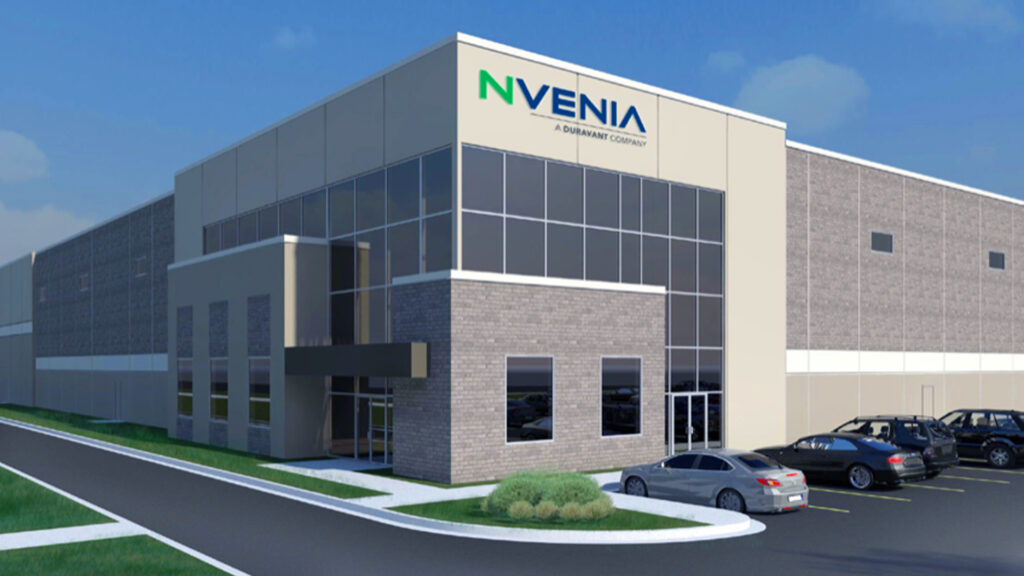
After several years of tough decisions, creative thinking and many, many meetings, two tenants moved into Bridge Point: Forward Space and nVenia (in 2020 and 2021, respectively). The new tenants bring a mix of corporate and manufacturing usage to Wood Dale—exactly what the City wanted.
“We aimed really high, and we got what we were looking for,” said Cage. “Actually, we got even more.”
Of course, getting a good tenant into a community is almost never easy. But Wood Dale faced a particularly puzzling series of challenges as they looked to fill this space.
The Jigsaw Puzzle
Historically, what has made Wood Dale so attractive to logistics companies—and now a blend of manufacturing and corporate users—is its strategic location.
Wood Dale sits just minutes west of O’Hare International Airport, next to Bensenville, along the I-390 corridor. I-290, I-355, Illinois Route 83 and other major highways are all nearby. This gives logistics companies (like Amazon, which has a Wood Dale facility) convenient access to multiple modes of transportation, allowing them to move goods quickly and efficiently to and from Midwest markets, and around the world.
Also, Wood Dale is in DuPage County, which has low property taxes. Cage said this is a major selling point for businesses that are considering the region.
“The number of people I’ve talked to who want to be in DuPage is huge,” he said. “As Community Development Director, that makes my job easier, because it gets people in the door.”
One of those companies is Nippon Express, a Japanese-owned logistics consulting business that integrates various modes of transportation into a one-stop solution.
For decades, Nippon was a tenant of two buildings in the northern quadrant of Wood Dale—an area that’s home to many of the community’s larger businesses—just south of Illinois Route 390.
As part of a strategy to synergize their Midwest operations, Nippon planned to grow their local presence—this included adding a corporate headquarters and relocating some 100 employees from their New York office to Wood Dale. However, the two buildings they currently occupied, which had been built in the 1980s, were out-of-date; they also didn’t offer the space that the company needed for the proposed expansion.
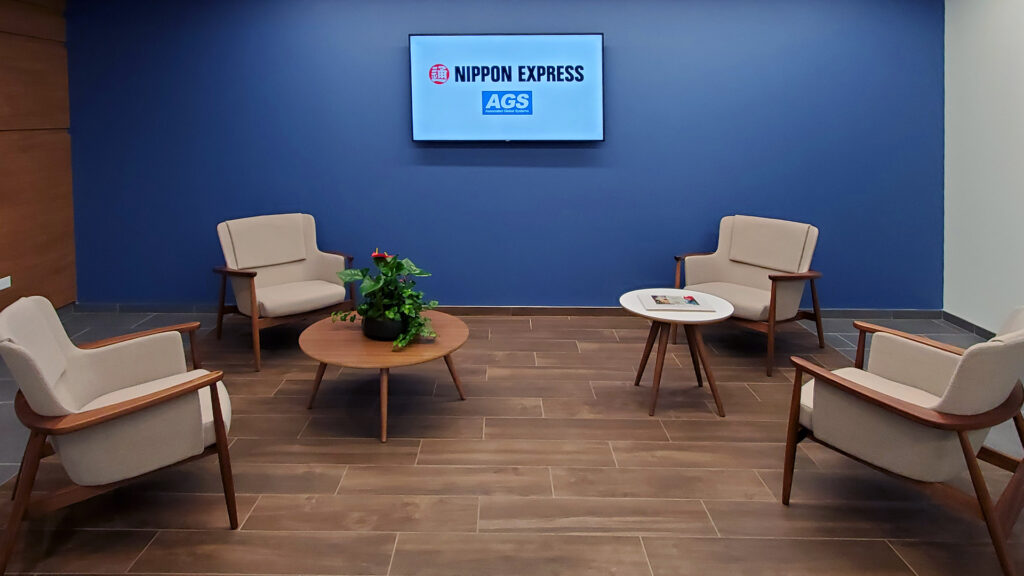
Nippon needed a new location. Initially, they turned to Bridge Point, the new development along Wood Dale Road.
This created an interesting dilemma for the City. Nippon had been part of the community for decades, and, as a Fortune 500 business, they brought a large amount of money and jobs to the area. Obviously, the City wanted to retain them.
However, in order to relocate and expand their facility as planned, Nippon would have needed all of Bridge Point, and the City was already closing in on an agreement with another company, Forward Space, that wanted one of Bridge Point’s two buildings.
This dilemma—in which the goals of attracting new businesses and retaining existing ones sometimes appear to be at odds—represents one of Wood Dale’s greatest challenges:
Space.
Wood Dale is a “built-out” community, meaning that much of its land has been developed. Unlike some cities further away from Chicago, it doesn’t have acres of open land. This sometimes makes it tougher to evolve the community and accomplish certain goals, like those outlined in the Comprehensive Plan. They aren’t working with a blank canvas.
Instead, Cage prefers to see it as a puzzle.
“We have all these pieces of the jigsaw,” he said. “If you want to bring a new business into the community, you have to rearrange things, and you have to be careful about it.”
In order to solve the puzzle of Nippon (a business they wanted to retain) and Forward Space (a business they wanted to attract), the City found a creative solution. First, Cage and others worked to bring Nippon’s attention toward a 20-acre space along Route 83, a location that checked every box on the company’s wish list: It was close to a major highway; it offered the space they needed; and it allowed them the freedom to build their facility to their specifications.
At the time, the area was unincorporated and occupied by residential properties; so, the City partnered with a developer that bought-out the residential properties, annexed the space and even rebuilt a section of Bryn Mawr Avenue that led to the future Nippon Express location. (The road had to be updated to meet the standards of a corporate park.) The developer then built a 300,000-square-foot facility in the newly annexed space, which became Nippon’s new U.S. Corporate Headquarters and warehouse in February 2021.
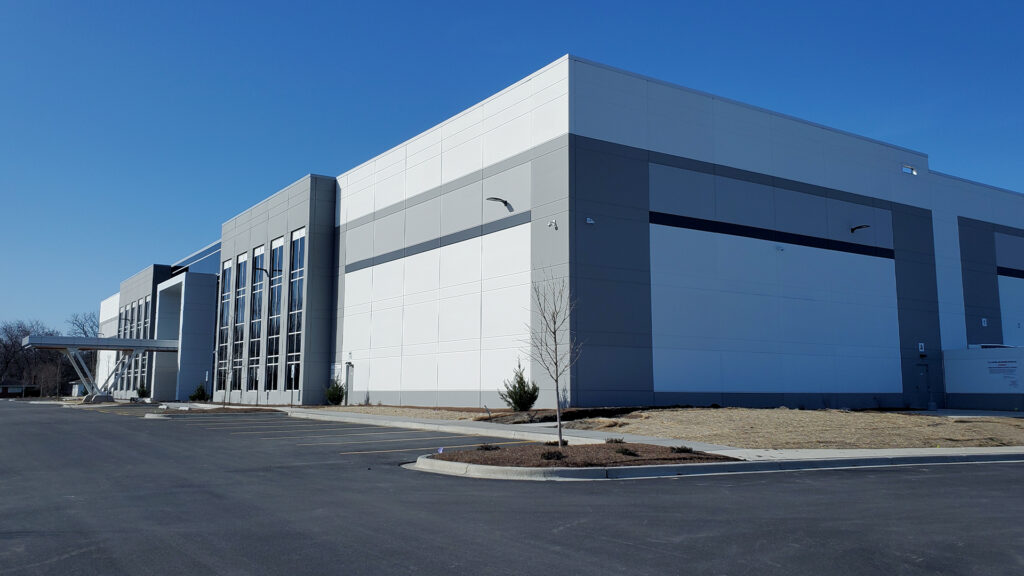
With this solution, the City accomplished both of its goals: They retained an established Fortune 500 company while bringing in a new business (actually, two new businesses) with diverse usages.
In Q4 of 2020, the smaller of the two Bridge Point buildings (100,378 square-feet; 650 N Wood Dale Rd) was leased to Forward Space, a commercial furniture dealer that also provides workplace planning and related services. The new Forward Space facility combined a corporate headquarters and a warehouse—right in line with Wood Dale’s diversification goal.

And then, in the spring of 2021, another business moved into the second, larger Bridge Point building (241,888 square-feet; 750 N Wood Dale Rd). nVenia, a new company formed by the consolidation of several Duravant entities, is a packaging equipment manufacturer and solutions provider. Their new manufacturing facility brings more than 200 jobs to the community, accomplishing additional goals of Wood Dale’s Comprehensive Plan: to bring in more workers and generate more spending at local businesses and greater sales-tax revenue.
The final piece of this economic-development puzzle is the pair of buildings that Nippon left behind along Route 390. Recently, a developer submitted a proposal to remodel both buildings, which will give the City an opportunity to attract more business.
“This is a good example of developing a built-out community in a smart way,” said Cage. “You move an existing business to another place within the community, where they can grow. Then, you develop the old site and use that space to bring in new tenants.”
With the right planning—and perhaps some serendipity—all the pieces fit into place.
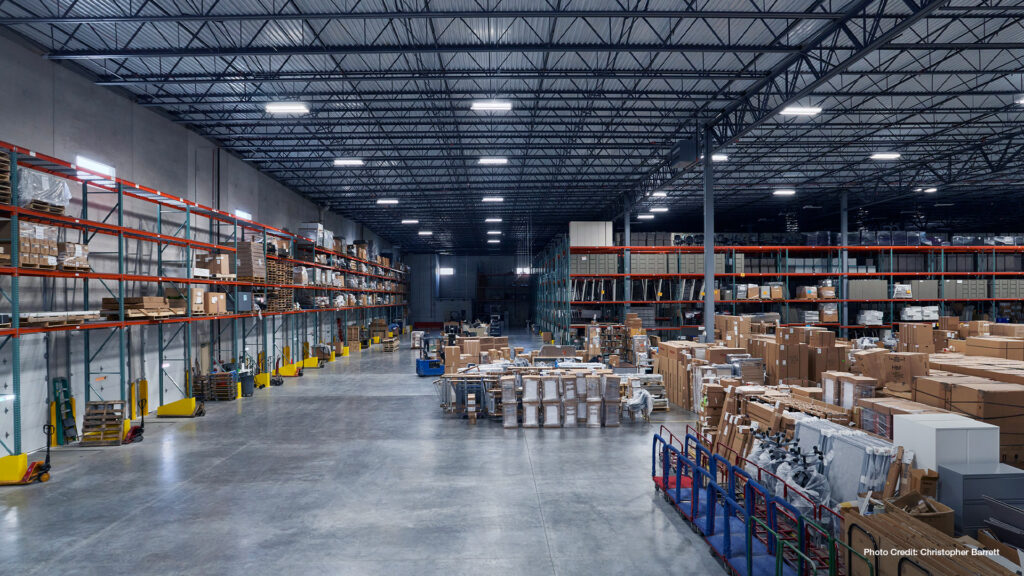
A “Front-Page” Community
Logistics has been and will continue to be a major part of the Wood Dale economy. But now, as they retain and attract a wider variety of businesses, the City wants you to see their community as a prime location for corporate and manufacturing users, among others.
In addition to working the “jigsaw puzzle” that makes this evolution possible, the community is being proactive. Recently, Cage noted that the City’s restrictions on building height—buildings in Wood Dale couldn’t be taller than 37 feet, unless the developer had a variance—was limiting developers that wanted to create buildings that would attract the very kind of tenants the City wanted.
During a meeting, Cage asked the City Council to vote to raise the maximum height from 37 to 42 feet. They raised it to 45.
“That sent a message,” he said.
Over the last several years, Cage and other City officials have worked to establish closer relationships with real-estate brokers and developers, helping them understand the kind of users that Wood Dale is looking to attract. Cage said these relationships—along with the City’s proactive stance and stories of businesses like Nippon, Forward Space and nVenia—are making Wood Dale a top choice.
“Years ago, I wouldn’t say that Wood Dale was always on the front page of everyone’s list, so to speak. Now, we’ve moved up.
“It’s a combination of being in DuPage County, our City being welcome to new businesses and developments, and everyone understanding the goals of our Comprehensive Plan.
“I’d say we’re now on the front page—top of the list.”
Wood Dale is a community in DuPage County, Illinois. Just west of Chicago, DuPage offers a strategic location at the heart of an international cargo gateway, as well as a collaborative environment between the public and private sector, a culturally diverse community, beautiful parks and trails, excellent schools and responsible local governance. Learn more about DuPage’s business climate here.


